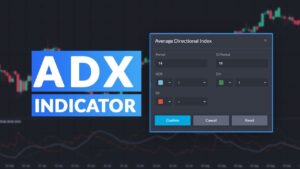In the dynamic world of financial markets, proprietary trading firms, commonly known as prop firms, play a significant role in shaping the landscape of trading activities. These firms, operating across various asset classes, have gained popularity for offering traders an opportunity to leverage their skills and access substantial capital. In this comprehensive exploration, we will delve into the intricacies of prop firms, shedding light on what they are, how they function, and the key factors that govern their operations.
Understanding Proprietary Trading Firms
Proprietary Trading Defined:
At its core, proprietary trading involves financial institutions trading for their own profit rather than on behalf of clients. Prop firms engage in buying and selling financial instruments, including stocks, bonds, and currencies, with the primary goal of generating profits from market movements.
What Sets Prop Firms Apart:
Prop trading firms distinguish themselves from traditional investment banks and brokerages by the absence of external client business. Instead, these firms use their own capital to take positions in the markets, assuming both the risks and rewards associated with their trading activities.
The Inner Workings of Prop Firms
Business Models:
Proprietary trading firms typically operate on two main business models. The first is the “market-making” model, where the firm facilitates trades by acting as the counterparty to client orders. The second is the “proprietary trading” model, where the firm trades its own capital to generate profits.
Risk Management Practices:
Given the inherent risks in trading, effective risk management is paramount for prop firms. Rigorous risk assessment, position monitoring, and the use of risk mitigation tools are integral components of a prop firm’s operations. Some firms may impose daily or weekly loss limits to control potential downsides.
Technology Infrastructure:
Proprietary trading firms heavily invest in cutting-edge technology to gain a competitive edge in the markets. High-frequency trading (HFT) algorithms, sophisticated trading platforms, and low-latency connectivity are common features of a prop firm’s tech infrastructure. These tools enable rapid execution and real-time decision-making.
Joining a Proprietary Trading Firm

Application Process:
Aspiring traders seeking to join a prop firm typically go through a rigorous application process. This may involve submitting trading performance records, undergoing interviews, and, in some cases, demonstrating proficiency in trading strategies. Some firms also require candidates to complete a trading simulation or evaluation period.
Our recommended prop firm: InfinityForexFunds
Capital Requirements:
One of the key attractions of prop firms is their ability to provide traders with access to significant capital. However, it’s important to note that certain prop firms may require traders to contribute their own capital as a form of commitment or risk management. The specifics vary among firms, and traders should carefully review the terms before joining.
Benefits and Challenges of Prop Trading
Benefits:
Access to Capital: Prop firms provide traders with the opportunity to trade with larger sums of money than they might have on their own.
Professional Support: Traders in prop firms often benefit from mentorship, training programs, and access to experienced professionals.
Advanced Technology: The sophisticated technology infrastructure of prop firms allows traders to execute trades quickly and efficiently.
Challenges:
Risk Exposure: Traders assume a significant amount of risk, and losses can have an impact on both the individual trader and the firm.
Competitive Environment: The trading landscape within prop firms is highly competitive, and success requires a deep understanding of markets and strategies.
Evolving Landscape and Future Trends
Technological Advancements:
The future of prop trading is likely to be shaped by continued advancements in technology. Artificial intelligence, machine learning, and blockchain technologies are expected to play a significant role in enhancing trading strategies and risk management practices.
Remote Trading Opportunities:
The rise of remote work and digital connectivity has opened up new possibilities for prop traders. With the ability to trade from virtually anywhere in the world, traders can explore opportunities with prop firms that embrace remote work arrangements.
Expansion into Cryptocurrencies:
The growing prominence of cryptocurrencies has not gone unnoticed by prop firms. Some are expanding their offerings to include crypto assets, providing traders with exposure to this evolving and volatile market.
In summary, proprietary trading firms are dynamic entities that form a crucial part of the financial markets. Understanding how these firms operate, their business models, and the associated benefits and challenges is essential for any trader considering joining a prop firm. As the financial landscape continues to evolve, prop trading is likely to adapt to emerging technologies and market trends, offering new opportunities for traders seeking a dynamic and competitive environment. Whether one chooses to pursue a career with a prop firm or not, the insights gained from exploring the world of proprietary trading contribute to a deeper understanding of the intricacies of the financial markets.
Let’s Manage Your Forex Funds With Fx Pips Guru!
Fx Pips Guru is a forex fund management company managing client’s funds based on monthly profit share. Let’s do Live Chat with our experts.




